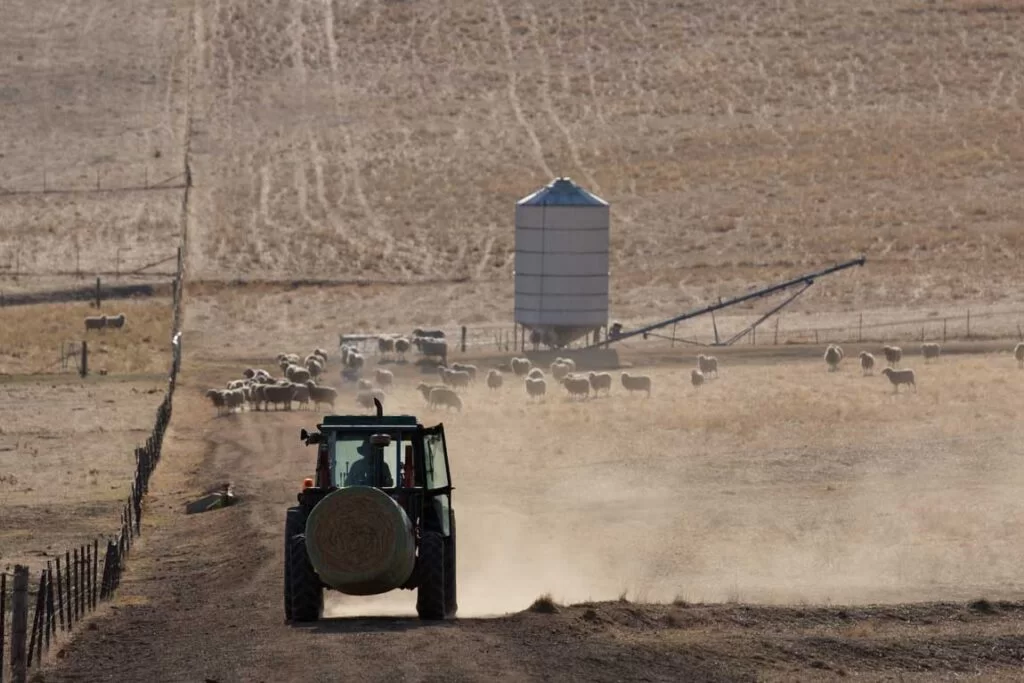Agreed to by the VFF Policy Council
Meeting 177
7 September 2022
Policy Statement
General Principles
1.The VFF actively promotes a collaborative and proactive approach to biosecurity management and control, as the Victorian farming community are key stakeholders frequently placed at the forefront of the biosecurity continuum.
2.The VFF acknowledges that Victorian farmers act as the first line of defence against persistent threats to biosecurity, and are suitably placed to deliver best practice in accordance with their respective industries.
3.The VFF recognises that a well-resourced national biosecurity system will safeguard Victorian agriculture from imminent threats to biosecurity while preserving domestic, international, import and export market access. However, the VFF insists that resources including, but not limited to training, staffing compensation and scenario planning must be appropriately and practicably distributed across the biosecurity continuum.
4.The VFF supports the introduction and national streamlining of traceability arrangements in the primary industries, provided these enhance, and do not impede agricultural productivity in Australia.
5.The VFF supports a biosecurity system that prioritises stringent and coordinated biosecurity management across the supply chain. This is necessary to preserve and protect the prosperity of Victorian agriculture from the persistent threat of endemic, established and exotic pests, weeds and diseases.
6.The VFF believes that where a farming system may be compromised by a biosecurity breach or incursion, that mechanisms for preparedness funding, cost recovery and compensation frameworks can be implemented immediately to minimise losses incurred by farmers.
On-farm biosecurity management
7.The VFF believes that the creation of biosecurity management plans is integral to safeguard farmers, as they are the conduit between best practice and maintenance of strict biosecurity controls. Moreover, the VFF endorses the installation of visible biosecurity signage to protect the Victorian farming community from threats to biosecurity.
8. The VFF strongly opposes any unauthorised entry and/or trespass onto properties as this violates biosecurity plans, and places production systems at greater risk of biosecurity breaches.
Endemic, established and exotic pests, weeds and diseases
9.The VFF supports ongoing surveillance of endemic, established and exotic pests, weeds and diseases at the international, interstate and intrastate levels, recognising that surveillance is key to early detection of threats to biosecurity which could detrimentally impact Australian agriculture.
10.The VFF believes that there must be shared responsibility of importers, exporters and government in the screening, surveillance, monitoring, chemical treatment or destruction of import products coming into Australia to protect agriculture from exotic pests, weeds and diseases.
Preparedness and emergency response
11.The VFF strongly supports a rapid response to biosecurity threats or outbreaks through unified early detection, control and communication between the farming community, industry and government, emphasising a practicable and measured approach to dealing with threats to biosecurity as they arise.
12.The VFF acknowledges that practical containment strategies are the gold standard to managing a disease outbreak or biosecurity breach, and supports extensive training and staffing by government, industry and the farming community to conduct a coordinated biosecurity response.
13.The VFF believes that close consultation must continue in the event of zoonotic disease, noting that a cohesive biosecurity response by the agricultural and the primary and allied health sectors is key to mitigating impacts to human, plant and animal health during a biosecurity incursion.
14.The VFF affirms that the delivery of scaled emergency preparedness exercises or practical stress testing must involve local, state and Commonwealth governments, while including the farming community as key stakeholders in the biosecurity emergency response.
15.The VFF believes that in the interest of enhanced preparedness, personal information must only be used by Government to identify localities impacted by a biosecurity emergency. The VFF strongly opposes the use of personal information contrary to this sole use, and insists that the privacy of farmers must be protected at all times.
Market access and reducing market disruption
16.The VFF believes that sufficient mitigation of biosecurity threats enables continued domestic and international market access for Victorian farmers. The minimisation of market disruption to agriculture must be a priority in the design and implementation of industry and government biosecurity protocols.
